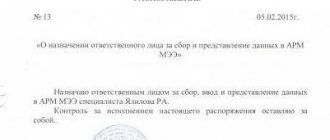Administrative responsibility of arbitration managers - an inside view
PART 1. WHO HAS THE RIGHT TO FILE COMPLAINTS AGAINST THE ACTIONS OF THE ARBITRATION MANAGER. POWERS OF THE CONTROL (SUPERVISION) AUTHORITY.
Administrative proceedings under Art. 14.13 against the Arbitration Manager is initiated according to the rules of Art. 28.1 of the Code of Administrative Violations.
As practice shows, there are two main reasons for initiating an administrative case against the Arbitration Manager:
— direct discovery by officials authorized to draw up protocols on administrative offenses of sufficient data indicating the existence of an administrative offense event;
- statements of persons participating in the bankruptcy case, and persons participating in the arbitration process in the bankruptcy case, the management bodies of the debtor - a legal entity, a self-regulatory organization of arbitration managers, containing sufficient data indicating the presence of an administrative offense event.
However, there are often cases of verification of the activities of an arbitration manager at the request of a person who has nothing to do with the bankruptcy case in which this arbitration manager was appointed. In such circumstances, the supervisory authority turns to the Law “On Citizens’ Appeals” and argues that it, as a body of the Government of the Russian Federation, has no right not to respond to citizens’ appeals, while justifying the initiation of an administrative case without proper appeal from the person involved in the case about bankruptcy according to the rules of paragraph 1.1 of Art. 28.1 is the reference in paragraph 1 of this article, namely, the direct discovery by officials authorized to draw up protocols on administrative offenses of sufficient data indicating the existence of an event of an administrative offense.
According to paragraph 3 of part 1 of Article 28.1 of the Code of Administrative Offenses of the Russian Federation, the grounds for initiating a case of an administrative offense are messages and statements of individuals and legal entities, as well as messages in the media containing data indicating the existence of an administrative offense event. (Resolution of the Supreme Court of the Russian Federation dated August 17, 2015 N 305-AD15-6786 in case N A40-117929/2014)
By virtue of clause 3, part 1, art. 28.1 of the Code of Administrative Offenses of the Russian Federation, the reasons for initiating a case of an administrative offense are messages and statements of individuals and legal entities, as well as messages in the media containing data indicating the existence of an administrative offense event (with the exception of administrative offenses provided for in Part 2 of Article 5.27 and Article 14.52 of this Code (Resolution of the Seventeenth Arbitration Court of Appeal dated October 17, 2016 No. 17AP-13047/2016-AKu in case No. A71-6759/2016) It turns out that anyone who visits the site https://bankrot.fedresurs.ru / maybe, having received information about the appointed arbitration manager, he can write a complaint against him, and this complaint, by virtue of clause 3, part 1, article 28 of the Code of Administrative Offenses of the Russian Federation, will be considered and administrative proceedings will be initiated on this complaint.
In most cases, when conducting an audit of the activities of the Arbitration Manager within the framework of the initiated Administrative proceedings on a complaint, the supervisory authority requests documents that are completely unrelated to the facts specified in the complaint and thus has the opportunity to hold the arbitration manager accountable upon discovery.
Here the question arises whether the actions of the supervisory authority are legal to go beyond the scope of the complaint and request documents not related to the facts specified in the complaint. The Administrative Code does not answer this question.
By analogy with inspection procedures for other administrative structures, regulatory authorities inspect enterprises and individual entrepreneurs based on the facts of the complaint, other documents regarding the entire activity of a legal entity or individual entrepreneur are not requested, and only if, when visiting the place where an administrative offense was committed (location of the legal entity and individual entrepreneur) another violation of the rules of a certain activity will be revealed that is not specified in the complaint; an administrative investigation may follow upon the discovery. But in the case of an Arbitration Manager, the supervisory authority requests all documentation on the activities of the Arbitration Manager in relation to a particular debtor. It turns out that the Arbitration Manager is completely unprotected from additional checks not related to “legitimate” complaints of persons participating in the bankruptcy case.
It is interesting to consider the history of the development of legislation regarding the development of Art. 28.1 Code of Administrative Offenses of the Russian Federation.
Until July 2007 Art. 28 of the Code of Administrative Offenses contained only points 1,2,3,4,5.
Federal Law of July 24, 2007 N 210-FZ “On Amendments to the Code of the Russian Federation on Administrative Offences”, Part 1, Art. 28 of the Code of Administrative Offenses of the Russian Federation was supplemented with paragraph 1.1 with the following content:
The reasons for initiating cases of administrative offenses provided for in Articles 14.12, 14.13, 14.23 of this Code are the reasons specified in paragraphs 1 and 2 of part 1 of this article, as well as messages and statements of the owner of the property of a unitary enterprise, management bodies of a legal entity, an arbitration manager, and when considering a bankruptcy case - a meeting (committee) of creditors.
It turned out that since July 2007. the reasons for initiating an administrative case under these articles were:
1) direct discovery by officials authorized to draw up protocols on administrative offenses of sufficient data indicating the existence of an administrative offense event;
2) materials received from law enforcement agencies, as well as from other state bodies, local government bodies, and public associations containing data indicating the existence of an administrative offense event;
3) messages and statements of the owner of the property of a unitary enterprise, the management bodies of a legal entity, the arbitration manager, and when considering a bankruptcy case - a meeting (committee) of creditors.
Those. The supervisory authority accepted for consideration an application for violation by the arbitration manager of the rules of bankruptcy legislation only signed by a special person - an employee of a government body or a representative of a meeting (committee) of creditors.
The bankruptcy creditors simply did not have the right to complain about the actions of the arbitration manager. But this did not mean at all that bankruptcy creditors had no protection if their rights and legitimate interests were violated. They could submit their complaint (claim) to a meeting (committee) of creditors or to law enforcement and other authorized bodies, which, based on the results of consideration of the complaint (claim), could respond by sending a corresponding message to the supervisory authority. The supervisory authority itself did not have the right to initiate an administrative case based on a complaint from a bankruptcy creditor, but at the same time it had the opportunity, having independently identified a violation in the activities of the arbitration manager, to initiate administrative cases and draw up protocols on administrative violations.
The turning point in this practice was the Determination of the Presidium of the Supreme Arbitration Court of the Russian Federation dated April 23, 2013 N 15652/12. The highest instance of the court indicated that “From the analysis of the provisions of Article 28.1 of the Code of Administrative Offenses of the Russian Federation, it follows that the list of reasons for initiating a case of an administrative offense against the arbitration manager is exhaustive; the bankruptcy creditor’s statement cannot be classified as one of such reasons.
In addition, from the provisions of Article 29 of the Federal Law of October 26, 2002 N 127-FZ “On Insolvency (Bankruptcy)” in conjunction with paragraphs 1, 5.5, 5.6, 5.8.2 of the Regulations on the Federal Service for State Registration, Cadastre and Cartography, approved by the resolution Government of the Russian Federation dated 06/01/2009 N 457, it follows that officials of executive authorities authorized to draw up protocols on administrative offenses on the basis of Part 3 of Article 14.13 of the Code of Administrative Offenses of the Russian Federation do not have the right to exercise control (supervision) functions over the activities of arbitration managers directly.
If officials of the bodies of the Federal Service for State Registration, Cadastre and Cartography do not have the authority to control (supervise) the activities of the arbitration managers themselves, a case of an administrative offense provided for in Part 3 of Article 14.13 of the Code of Administrative Offenses of the Russian Federation cannot be initiated even if there is one of the reasons listed in Article 28.1 of the Code of Administrative Offenses of the Russian Federation.
Thus, in the event of failure or improper performance by the arbitration manager of the duties established by the legislation on insolvency (bankruptcy), the creditor is deprived of a real opportunity to initiate an audit of his activities in order for the state to take appropriate measures to influence the offender and prevent the offense in the future.
Thus, the creditor is limited in the effective protection of its property rights.”
This Determination of the Supreme Court became the impetus for the adoption of Federal Law dated July 23, 2013 N 202-FZ, which amended paragraph 1.1 of Article 28 of the Code of Administrative Offences. From this moment on, the supervisory authority acquired the right to initiate administrative proceedings against the Arbitration Manager based on a complaint from a bankruptcy creditor.
The legislator, having changed clause 1.1 of Article 28.1 of the Code of Administrative Offenses, at the same time did not make changes to other norms of legislation concerning the powers of the supervisory body to check the actions of the arbitration manager directly.
Thus, the Federal Law “On Insolvency (Bankruptcy)” in paragraph 11 of Article 2 specifies “the control (supervision) body is a federal executive body authorized by the Government of the Russian Federation to exercise functions of control (supervision) over the activities of self-regulatory organizations of insolvency practitioners”
Those. The basic law regulating the relations between participants in the debtor's bankruptcy process and the arbitration process in a bankruptcy case does not provide for the possibility of the supervisory authority to directly check the activities of the arbitration manager.
It is worth noting the fact that the text of paragraph 11 of Article 2 of the Bankruptcy Law was changed by the legislator by Federal Law dated July 27, 2010 N 219-FZ; in the previously valid wording, the law read as follows:
“a control (supervision) body is a federal executive body authorized by the Government of the Russian Federation to exercise functions of control (supervision) over the activities of arbitration managers and self-regulatory organizations of arbitration managers.”
Those. Previously, the law provided for the right of the supervisory authority to inspect the activities of the Arbitration Manager directly. And later this right of the controlling body was excluded. And so it remains to this day. The Basic Law does not in any way regulate the inspection of the activities of arbitration managers. And only Art. 29 of the Law regulates the verification by the control (supervision) body of compliance with the law by Self-Regulatory Organizations of Arbitration Managers.
Thus, on the official website of the Federal Service for State Registration, Cadastre and Cartography (Rosreestr), its powers in the field of “Control (supervision) over the activities of self-regulatory organizations of insolvency practitioners” are indicated. The powers to directly inspect the activities of insolvency practitioners are not indicated on the official website.
In paragraphs 5.5 and 5.6 of the Regulations “On the Federal Service for State Registration, Cadastre and Cartography”, approved by Decree of the Government of the Russian Federation of June 1, 2009 N 457, the powers of the Federal Service are defined:
5.5. draws up protocols on administrative offenses in the manner established by the legislation of the Russian Federation, considers cases of administrative offenses in the prescribed manner and imposes administrative penalties;
5.6. carries out, in accordance with the established procedure, inspections of the activities of self-regulatory organizations of arbitration managers, self-regulatory organizations of appraisers, self-regulatory organizations of cadastral engineers, the national association of self-regulatory organizations of cadastral engineers;
The Regulations do not provide for powers to inspect the activities of the Arbitration Manager. However, the Regulations further include clause 5.8.2, which gives the Control Body the right to apply in the prescribed manner to the court with an application to bring the arbitration manager, a self-regulatory organization of arbitration managers and (or) its official, a self-regulatory organization of appraisers and their officials to administrative liability.
In this case, a conflict of norms is obvious. On the one hand, the supervisory authority does not have the authority to check the activities of the arbitration manager, and on the other hand, it has the right to go to court with a demand to bring the Arbitration manager to administrative responsibility.
This miscalculation of the legislator was “corrected” by the law enforcement body - the Supreme Arbitration Court. Resolution of the Presidium of the Supreme Arbitration Court of the Russian Federation dated 02.25.2014 N 15652/12 in case N A03-2922/2012 “from the cumulative interpretation of clauses 5.5, 5.6, 5.8.2 of the Regulations on the Federal Service for State Registration, Cadastre and Cartography, approved by the Decree of the Government of the Russian Federation dated 01.06 .2009 N 457, it follows that the Federal Service for State Registration, Cadastre and Cartography (including its territorial bodies) is an executive body empowered to draw up a protocol on an administrative offense in relation to arbitration managers, provided for in Part 3 of Article 14.13 of the Code of Administrative Offenses of the Russian Federation, and to apply to the arbitration the court with an application to bring them to administrative responsibility on the basis of the said norm, and, therefore, the right to initiate cases against arbitration managers regarding the specified administrative offense and to conduct an audit of their activities.”
Thus, for the second time, the judicial authorities “rule” the legislator with their interpretation and strengthen the powers of Rosreestr, while at the same time weakening the protection of the rights of Arbitration Managers.
Against this background, Art. looks even more curious. 231 of the Federal Law “On Insolvency (Bankruptcy)”. Clause 3 of this article defines the powers of the control (supervision) body in relation to arbitration managers who are not members of the SRO of arbitration managers. Changes to the Law concerning the registration of the activities of an arbitration manager (previously it was necessary to have the status of an Individual Entrepreneur, later only to be a member of an SRO) were introduced by Law of December 30, 2008 N 296-FZ. The same Law amended Art. 231 of the Law “On Insolvency (Bankruptcy)”. From this moment on, the supervisory authority was given the right to monitor the activities of Arbitration Managers who are not members of the SRO for a year. It is not clear how the powers of the supervisory authority are determined a year after the Law “On Insolvency (Bankruptcy)” as amended by Law dated December 30, 2008 N 296-FZ; there is no practice on this issue.
I dare to suggest that Art. 231 of the Law “On Insolvency (Bankruptcy)” in addition to Art. 29 of this law limited the rights of the supervisory authority to control the direct activities of the Arbitration Managers, but redirected its control functions to the activities of the SRO of the Arbitration Managers.
The explanations given on the page at https://vk.com/page-113887786_52192601 are very interesting in this regard
Conclusion: Regulatory acts of direct effect: The Federal Law “On Insolvency (Bankruptcy)” and the Code of Administrative Offenses do not provide for the powers of the supervisory authority (Rosreestr) to control the activities of insolvency practitioners and carry out administrative measures against them; such power is established only in one by-law - Regulations on the Federal Service for State Registration, Cadastre and Cartography, as well as in the Resolutions of the Presidium of the Supreme Arbitration Court of the Russian Federation on specific cases.
In order to prevent administrative offenses, the Office reports on typical violations identified in the activities of insolvency practitioners during administrative investigations based on incoming applications, as well as upon direct detection, and qualified under Part 1. 3, 3.1 art. 14.13 Code of Administrative Offenses of the Russian Federation.
The largest number of appeals are received for the actions of arbitration managers in the bankruptcy procedure, since this procedure provides for the performance of a greater number of duties compared to other insolvency (bankruptcy) procedures provided for by the Federal Law of October 26, 2002 No. 127-FZ “On Insolvency (Bankruptcy)” ( hereinafter referred to as the Bankruptcy Law). In addition, due to the growing number of cases of insolvency (bankruptcy) of citizens being considered by the Arbitration Court of the Krasnodar Territory, a considerable number of violations are committed by arbitration managers in the procedure for the sale of citizens' property. In this case, attention should be paid to the most common violations of the norms of the current legislation on insolvency (bankruptcy), committed by arbitration managers: - violation of the procedure and deadlines for publishing mandatory information provided for by the Bankruptcy Law; — improper fulfillment of the obligation to prepare reports of the arbitration manager in terms of indicating incomplete, unreliable information in the reports; — improper fulfillment (non-fulfillment) of the obligation to submit to the arbitration court the report of the arbitration manager and other documents of the debtor following the results of bankruptcy proceedings, as well as those requested by the arbitration court; — violation of the frequency of presentation to the meeting of the debtor’s creditors of the bankruptcy trustee’s reports on his activities and on the progress of the bankruptcy procedure; - improper fulfillment (non-fulfillment) of the obligation to conduct an inventory (inventory) of the debtor’s property, including violation of the deadlines for its implementation; — improper fulfillment (non-fulfillment) of obligations to analyze the financial condition of the debtor and prepare a conclusion on the presence (absence) of signs of deliberate (fictitious) bankruptcy; — improper fulfillment (non-fulfillment) of the obligation to sell the debtor’s property, violation of the auction procedure; — violation of the procedure for holding a meeting of creditors, a meeting of the creditors’ committee; — failure to fulfill the obligation to hold a meeting of the debtor’s employees (former employees); — failure to comply with the procedure for sending the financial manager’s report to the debtor’s creditors; — violation of the procedure for approving the regulations on the procedure, conditions and terms for the sale of the debtor’s property in terms of the deadlines for sending for approval and selecting entities approving the regulations; — violation of the order of satisfaction of the debtor’s creditors’ claims; — violation of the deadline for holding (not holding) the first meeting of the debtor’s creditors; — violation of the procedure for forming the bankruptcy estate of the debtor; — inadequate control over the auction organizer, hired by the arbitration manager, in terms of compliance with the procedure for conducting auctions; — violation of the procedure for attracting specialists to ensure the fulfillment of the duties assigned to the arbitration manager; — violation of the procedure for using the debtor’s current accounts, including failure to fulfill the obligation to open a special current account of the debtor for accepting deposits and for distributing funds received from the sale of the pledged item; — exceeding the amount of payment for the services of attracted specialists, improper work with accounts receivable; — failure to fulfill the obligation to conclude an agreement on additional liability insurance for the insolvency administrator.
The RF Supreme Court named a new basis for the removal of arbitration managers
Author Nadezhda Borisova Published 02/27/2019 02/27/2019
The restrictions for company managers established by the law on state registration also apply to insolvency practitioners, the Supreme Court (SC) of the Russian Federation established. He came to this conclusion while considering a dispute between the Federal Tax Service (FTS) and a manager who was tried to be removed from work due to his three-year ban on registration actions.
Judicial practice is moving towards an unjustified tightening of requirements for insolvency practitioners, members of this professional community believe. But there is also a point of view that the position of the RF Supreme Court is logical, and there is no reason to make a distinction between managers and directors.
SPECIAL STATUS OF THE MANAGER
The proceedings at the Judicial Collegium for Economic Disputes (SCES) of the Supreme Court of the Russian Federation were conducted on a complaint from the Federal Tax Service, which in three lower courts was unable to achieve the removal of Alexey Shelepov from the duties of the bankruptcy trustee of Novy Port LLC. The service believed that A. Shelepov could not be appointed to this post, since he had previously lost the right to perform registration actions for three years, since, as the director of Almis LLC, he did not provide reliable information about its actual location.
Three courts disagreed with the Federal Tax Service. In their opinion, the removal of a manager in a bankruptcy case is possible only on the grounds provided for by the insolvency law, which is special in relation to the state registration law. The courts did not identify such grounds.
But the SKES RF Armed Forces did not agree with this logic. “The courts’ findings that the restrictions established by the registration law do not prevent the bankruptcy trustee from filling the position are erroneous,” the panel said in its ruling, published in a filing of cases on Wednesday.
SKES RF Armed Forces reminded that, according to the insolvency law, the arbitration manager is subject to all the requirements for managers of legal entities.
“Consequently, the requirements associated with the special status of a manager are additional to the general requirements imposed by law on ordinary managers. This means that a person who is subject to a temporary ban on participation in the management of organizations cannot be approved as a bankruptcy manager,” says the ruling of the RF Armed Forces. The panel overturned the decisions of the lower courts and sent the case back to the first instance for review.
But at the same time, the panel clarified that the restrictions established by the law on state registration cannot be applied if the insolvency practitioner was appointed by the court to an organization with an unreliable address. But in the dispute under consideration, the situation is different: Almis was headed by A. Shelepov not as an arbitration manager.
UNREASONABLE STRONGER OR LOGICAL REQUIREMENTS
The position of the RF Armed Forces is completely consistent, notes legal lawyer Dmitry Shniger. “When issuing powers of attorney and dismissing employees, both the manager and the director act on the basis of the same rules of law,” he says. “If the manager is a management body, then it is unclear why the provisions of the law regulating the status and activities of such bodies, including the provisions of the law on registration, should suddenly not apply to it.”
As for the requirements for the manager’s liability established by special and more detailed rules of bankruptcy law, they should be considered as additional. In conditions of insolvency, abuse is more likely, and the circle of potential victims is wider, explains D. Schniger and gives an analogy with looting during a disaster.
Arbitration managers see in the position of the RF Armed Forces a desire to tighten requirements and responsibility. “In relation to arbitration managers, the practice of applying restrictions on participation in the management of legal entities, provided for by the registration law, is clearly moving towards tightening,” says Dmitry Skripichnikov, Chairman of the Council of the Russian Union of Self-Regulatory Organizations of Arbitration Managers.
In his opinion, the right of arbitration managers to carry out professional activities is under threat. “At the same time, the law on registration does not take into account the specifics of the activities of the arbitration manager: he is appointed by the court, temporarily, on a professional basis, exercises the powers of the debtor’s manager and, in the event of dishonest activities, will bear responsibility established by the insolvency law,” recalls D. Skripichnikov.
The position of the RF Supreme Court may turn out to be a “real shock” for many arbitration managers, says Alexey Leonov, a member of the Moscow Self-Regulatory Organization of Professional Arbitration Managers association. One of the conditions for acquiring the status of an arbitration manager is to have at least a year of work experience in management positions, he explains, and many arbitration managers could acquire it in organizations that had problems with the reliability of their legal address. Now, he said, such managers will be forced to leave the profession.
In fact, according to A. Leonov, the RF Armed Forces have endowed the tax authorities with a powerful tool for purging the ranks of arbitration managers: intimidating and punishing the independent and obstinate. He doubts that this will benefit the professional community. “The formal purity of the application form will be valued, and not the professional qualities of the manager,” argues A. Leonov. “The only consolation is that this interpretation does not apply to cases of appointment of managers to organizations that already have an unreliable address.”
“Tax authorities often include arbitration managers in the list of mass directors only on the basis that they are registered in the Unified State Register of Legal Entities as managers in many legal entities,” says arbitration manager Igor Vyshegorodtsev. According to him, after such a decision by the Supreme Court, the manager can be expelled from any procedure.
The Civil Law Club discussed amendments on the disqualification of managers
On June 11, a “Private Thursday” was held dedicated to the disqualification of managers in Russia and abroad.
The liability of arbitration managers is provided for in two parts of Art. 14.13 Code of Administrative Offenses (Part 3 and Part 3.1). Administrative liability for the first violation provides for an alternative sanction; a repeated violation only entails disqualification for a period of six months to three years. There is no doubt that measures to respond to violations of current legislation must be applied in accordance with the general legal principles of legal liability and be proportionate to the violations committed and the consequences caused by them. Do the measures provided for in the Code of Administrative Offenses for violations by insolvency practitioners comply with such principles?
In some cases, the sanction for violations is really fair (for example, non-contestation of transactions, non-collection of receivables). However, current practice contains many examples when proportionality is out of the question: managers may be left without work due to a violation of the deadline for publication on the EFRSB or due to a violation of the reporting rules. For example, if a manager forgot to file a report, should such a manager be held administratively liable? I think not. There are no negative consequences associated with such a violation. Or another example - a violation really does entail some negative consequences, but disqualification for such a violation seems to be too disproportionate a measure of responsibility, but the judge has no other choice if the violation is repeated.
It is worth noting that the consequences of disqualification are enormous. This includes removal from all procedures, therefore, deprivation of earnings and exclusion from the SRO, which subsequently entails the inability to join a new SRO for three years. And in the latter case, the period of actual disqualification increases in any case to three years, even if the manager was suspended for only 6 months.
The only thing that can protect the manager from disqualification is the insignificance of the offense he committed (Article 2.9 of the Administrative Code). However, there are also difficulties here. The concept of insignificance is very situational: if in one case the court recognizes a violation of the deadline for publishing a message as insignificant, then in another, a similar violation may not have such a characteristic.
As a result of the conversation, possible options for justifying insignificance were given. For example, if the manager forgot to indicate the debtor's address in the notice of a meeting of creditors. However, the knowledge of this information can be achieved through other information (for example, the notice indicates the name of the debtor, case number). The insignificance is also obvious if all persons participating in the case took part in the meeting.
Since disqualification, among other things, entails exclusion from all proceedings, it is useful to make a comparison with the grounds for exclusion in the Bankruptcy Law. Yes, Art. 145 provides for the removal of a manager in connection with the satisfaction of a complaint about non-fulfillment or improper performance of duties, if this violated the rights and legitimate interests of the complainant and caused or could cause losses to the debtor or his creditors.
Removal is also possible on the basis of a petition from a meeting of creditors (committee of creditors) in case of failure to fulfill or improper performance of the duties assigned to the manager. At the same time, the Presidium of the Supreme Arbitration Court explained that such violations must be significant (clause 10 of the information letter dated May 22, 2012 No. 1590).
After the adoption of Resolution of the Plenum of the Supreme Arbitration Court of the Russian Federation No. 35, the court itself had the opportunity to remove the manager or refuse to approve him. The clarification concerns cases where the manager has committed repeated gross intentional violations and these have led to doubts about the manager’s competence, integrity or independence (clause 56).
Obviously, the easiest way is to get the manager disqualified under Part 3.1 of Art. 14.13 Code of Administrative Offences. Understanding this, courts often take into account the provisions of paragraph 56 of the resolution of the Plenum of the Supreme Arbitration Court when bringing to justice not only under Part 3.1, but also under Part 3 of Art. 14.13 Code of Administrative Offences. This trend in court practice cannot but be welcomed; it allows one to avoid disqualification if managers commit formal violations.
This year, a draft of a new Code of Administrative Offenses was published, which, among other things, added an alternative sanction for repeated violations. However, on May 29, another draft amendment was published that did not propose reform of administrative liability.
The speakers discussed what the rules on the responsibility of managers could be, including through the prism of foreign experience. Answered specific questions from listeners, which made the discussion more informative.
You can purchase a recording of the seminar on the organizer’s website:
https://privlaw-conf.ru/semi1106








